Awardee Spotlight: Travell Williams
Travell Williams received the 2016 Grace Holt Departmental Award for his contributions to public service. He founded the Sankofa Fellowship in the North Lawndale Library which aims to bring together community members in support of them learning to read around black texts. He has also worked in partnership with the Department of African American Studies to collect archives on Grace Holt.
Image of Travell Williams Heading link
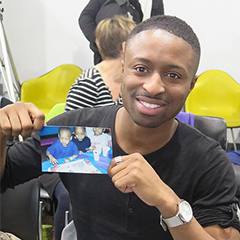
“I became an African American Studies major because I noticed an absence in my curriculum regarding blackness.”
| African American Studies alumni
Interview with Travell Williams Heading link
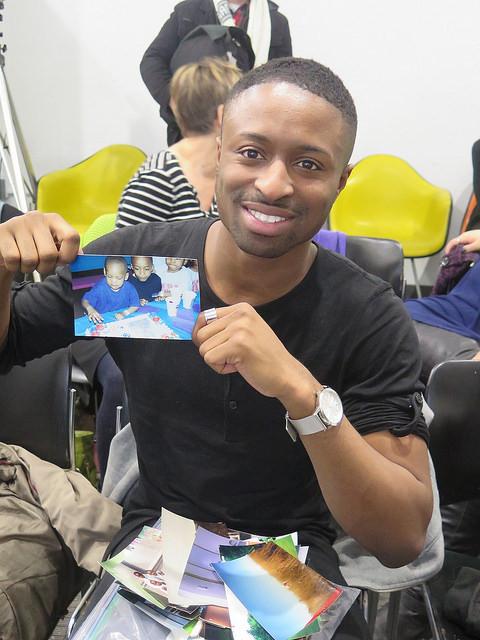
Where are you from? How did this inform the way you were raised?
Travell Williams: In a geographical sense I was born in Chicago, IL. In a cultural sense I am from the south (non specifically Montgomery, AL). The map is somewhere between my tongue and heart.
Why did you decide to come to UIC?
Williams: I chose UIC based on a memory. When it was time to select a university I remembered a summer computer scholars camp I attended at UIC. Simeko Washington, now a doctoral student in the College of Education, was one of the leaders of the camp. I remembered how nurturing and intelligent she was. Thus, my intent to enroll came from a place of hopefully being that kind of person one day. As a first generation student, I participated in TRIO Upward Bound in high school which taught me how to navigate college admissions. In doing so they exposed us to a variety of campuses, but UIC truly felt like home (and it didn’t hurt that I was born on west campus).
Why did you choose the major you’re in?
Williams: I became an English Major because everything else I wanted to major in was were too expensive for me. At least I knew as an English Major there was always a safety net: the library. So in truth, because I knew I could not afford the books and supplies. But another side of the truth is that I took an Understanding Literature course created by Marc Baez that focused on the aesthetics and ethics of Stand-up comedy. I remember going “so this is also what happens in the English department?” My roommate at the time was already frustrated with the fact that I had taken out so many books and they had not only filled our bookshelves but also the floors and beds of our dorm room. I became an African American Studies major because I noticed an absence in my curriculum regarding blackness. I also needed another space to think about issues, ideas, and histories that resonated with the lived experiences of myself and everyone I loved.
Who are some of your mentors and why?
Williams: I believe I have a habit of collecting mentors. In the department I feel as if I have had exchanges with every faculty member that have truly shaped my pursuits and interests. More specifically, Johari Jabir and Natasha Barnes are my all around “day ones” (as Drake would say). They have been very deliberate about teaching and supporting me across several domains of my life. Professor Rhodes and Teresa Moreno, have also played a tremendous role in creating spaces for me to seriously commit to and grow through research. Professor Ferguson relentlessly helps me “be my own model” in our reading tutorials. And the talks I have with Cedric Johnson and Lynette Jackson in passing, as well as the work they publish, pushes me to consider what I probably would not have before.
Why did you apply for the Grace Holt Award?
Williams: I applied because I believe awards to be both a moment of recognition and critique. I was more interested in the latter on my end. What would be revealed to me in thinking through Grace Holt’s life and legacy while benefiting from it? Also I was interested in the capacity awards have to distill entire persons into a book they’ve written, cure they’ve found, or success they have had. I was curious in how attempting to align with the criteria of the award what was I willing to share about myself and what was I not. Finally, it was important for me to grow out of my comfort zone and apply. I usually deter myself from public recognition. I am still trying to become better at seeking and accepting it.
Part Two of Interview Heading link
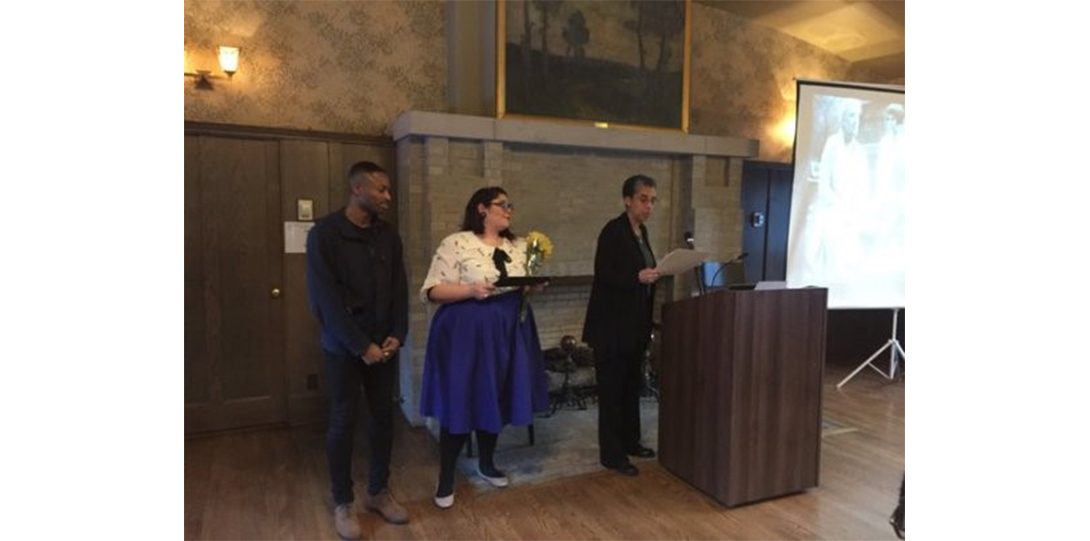
What does activism mean to you?
Williams: Activism is critical resistance. Critical, not because it is some radical extension to a field of thought. Critical because it is not only self reflexive but also makes the adjustments to ethically resist that which it opposes. I’m interested in activists and activisms that don’t simply “unpack”, “reimagine”, or “reconsider” but they also work tirelessly to connect people with the life giving resources they need. The hard work of any movement, to me, is keeping people alive versus advocating on their behalf. The academy teaches us how to advocate; I have not read within the fine print of any program or syllabus that “this is how you keep people alive.” True activists, for me, figure out the latter. #nomorespokespeople
What’s an issue that means a lot to you?
Williams: Taking public goods out of the market. Anything that contributes to the overall life cycle and function of human beings should not be profitable or intermingled with the exchange of goods and services. Specifically for me; housing, healthcare, education, and water and food, should not come down to people working for them. This excludes people who do not have the means to work from getting the life sustaining resources they need.
Part Three of Interview Heading link
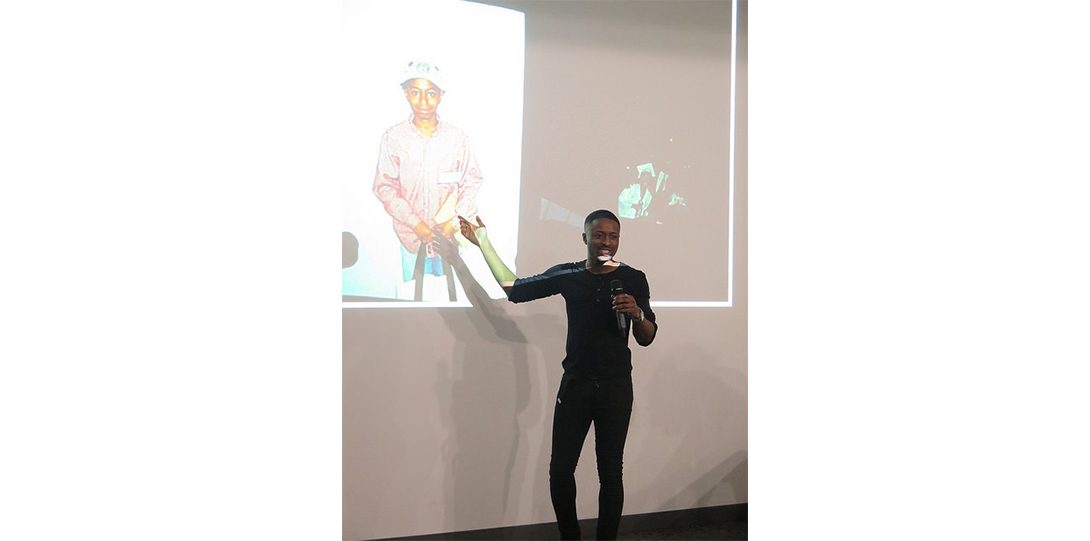
What are your hobbies?
Williams: Simply, recovering my ballet training when no one is looking. Bobbin my head to drill music. Hosting tea parties (real china and politics, nothing related to the two-party system we have to deal with). Organizing my thoughts and time.
What is the best thing about Chicago?
Williams: The best thing about Chicago are the seasons. You get, or use to get, each one in its extreme. When leaves fall they really fall. When winter hits it really hits. I am comfortable with change because of the seasons we have. I understand that some things will never come back and others are waiting around the corner. There is something deeply beautiful and troubling with a person holding the fullness of each of these seasons within them. Ask any of our politicians (ask Rahm) but also ask the drummer boys on state or a pregnant woman running to catch a bus.
How would you describe the Department of African American Studies?
Williams: Everyone is breaking ground in their own field and underneath this there is so much connection. No two majors or minors, faculty, administrators, graduate assistants, or student workers are alike. Everyone is politicized about something which can be comforting to a variety of UIC students. In walking from class to UH Professor Rhodes, our BRILLAINT AND AWESOME chair, shared a phenomenal vision she had. She asked me, “could you imagine if everyone on a campus was producing an independent inquiry project. That’s my radical project.” I would have to this is where I envision the department heading. And next the world.
Part Four of Interview Heading link
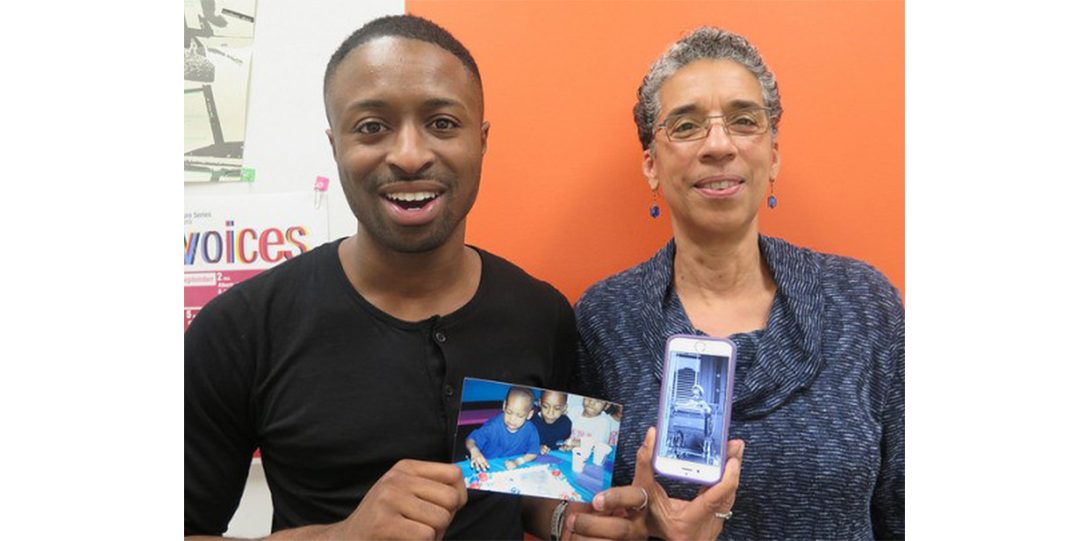
Do you have an idea of a “dream job”?
Williams: My dream job would come down to two verbs, “remember” and “heal.” I love huge data sets, loads of information, and exercising my memory around them; whether it be synthesis, recall, or interpretation. I also enjoy where this intersects with the process of human healing. How can what I remember be a resource point of healing for others. I believe what and how we remember has a lot to do with the traumas we all face and attempt to heal. To me, the archive and the human body has so much in common. Like bodies, archives have ways of attempting to heal themselves and also experience trauma around essential parts that might be missing. Where bodies, like archives, use shape and hierarchy to articulate a former self or emerging self. Any job that allows me to deal with both I am fine.